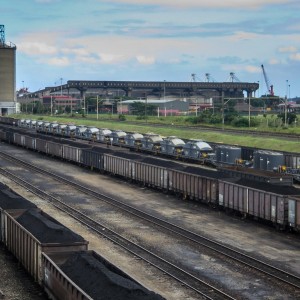The Stream, March 24: State Agency Responsible For Flint Water Crisis, Task Force Finds
The Global Rundown
An independent state task force placed primary blame for the Flint water crisis on Michigan’s Department of Environmental Quality. Experts said water released by China to downstream countries on the Mekong River will do little to relieve drought conditions, while California released water from some of its largest reservoirs to prevent floods for the first time in years. First Nations leaders in Canada expressed skepticism of government pledges to end boil water advisories. A report found that the global coal industry uses enough water to meet the needs of more than a billion people. Some farmers in Zimbabwe have employed new technology and practices to boost food production even amid a drought.
“Water released from the dam has a very limited effect on the water level in Vietnam, let alone in helping to ease the drought.” –Duong Van Ni, a professor at Can Tho University, on the 2.3 billion cubic meters of water released this month by China to downstream countries on the Mekong River. (Radio Free Asia)
By The Numbers
1.2 billion people Number whose basic needs could be met by the same amount of water used by the global coal industry. Bloomberg
5 years Time since Lake Shasta, the largest reservoir in California, last released water for flood control measures. El Nino-linked rains have forced operators to release water from several of the state’s biggest reservoirs this month. Sacramento Bee
4 metric tons Amount of millet a farmer using early warning tools and improved agriculture practices in Zimbabwe expects to harvest this season despite a drought, nearly three times as much as last season. Reuters
Science, Studies, And Reports
The Michigan Department of Environmental Quality is the actor most responsible for the lead-contaminated water crisis in Flint, according to the findings of an independent state task force. The task force also placed blame on other state agencies, emergency managers in the city, and ultimately Governor Rick Snyder. NPR
On The Radar
The leaders of Canada’s First Nations have expressed skepticism of federal government pledges to end boil water advisories in their communities within five years, saying the issue is complex and can’t be fixed by investment alone. Eighty-six First Nations in Canada have boil water advisories, not including British Columbia. Vice News
A news correspondent for Circle of Blue based out of Hawaii. She writes The Stream, Circle of Blue’s daily digest of international water news trends. Her interests include food security, ecology and the Great Lakes.
Contact Codi Kozacek






Leave a Reply
Want to join the discussion?Feel free to contribute!